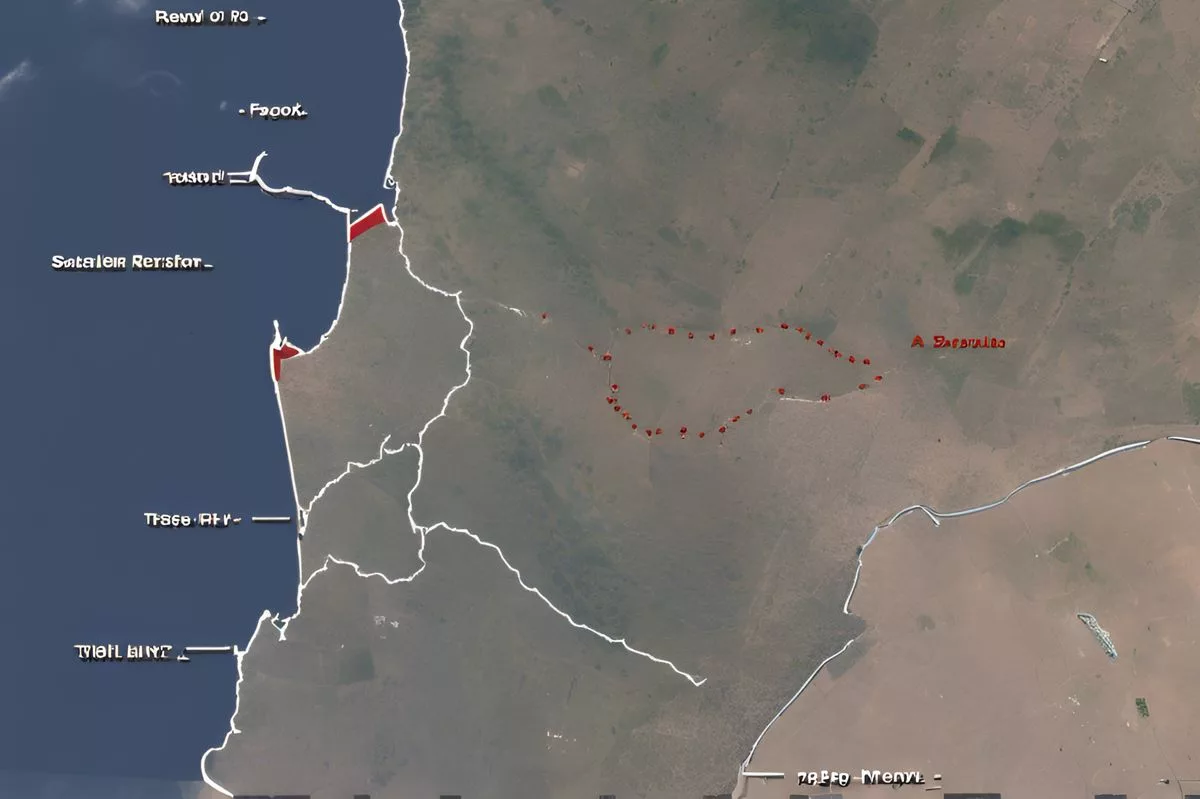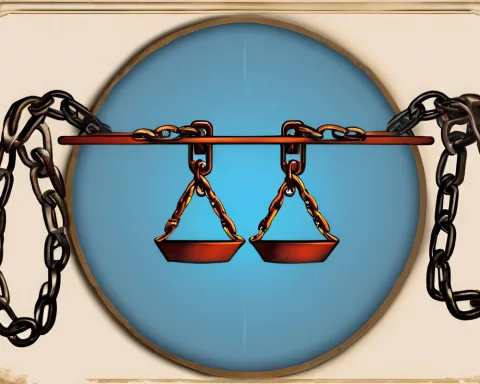The proposed reforms signify a critical milestone in the journey towards a secure and thriving South Africa, striking a balance between national security and individual rights.
Addressing Security Concerns in South Africa’s North West Province: How is the General Intelligence Laws Amendment Bill helping to reinforce state security? The Bill proposes key reforms to the intelligence services, including the division of the State Security Agency into domestic and foreign intelligence services. The locals support the Bill’s potential to bolster border controls and tackle corruption within the Department of Home Affairs while also expressing reservations about potential infringements on individual privacy. The proposed reforms signify a critical milestone in the journey towards a secure and thriving South Africa.
The Current Security Landscape
South Africa’s North West province, a region known for its rugged beauty and stark landscapes, has recently been forced to grapple with a concern that surpasses its regional boundaries. The national security issue has reverberated through the local communities, prompting them to call on the Ad Hoc Committee on the General Intelligence Laws Amendment Bill, functioning under the National Council of Provinces, to leverage the suggested intelligence reform to bolster the security at the nation’s points of entry.
The problem of permeable borders is not new to the region. During the public hearings held by the committee in the Mogwase Local Municipality, the local population expressed their growing anxiety over this enduring problem. They see it as a significant threat to the stability of the state and are of the opinion that the revamped intelligence services should promptly and effectively tackle this issue.
The Promise of the General Intelligence Laws Amendment Bill
The locals’ endorsement of the General Intelligence Laws Amendment Bill (GILAB) stems from the potential they believe it possesses. The Bill’s primary objective is to implement key reforms to the state intelligence services, in line with the suggestions made by the High-Level Review Panel on the State Security Agency (SSA). The proposed amendments have won the trust of the residents, who anticipate these changes will contribute to a fortified state security system.
In tandem with this, the residents identify inadequate border controls as the root cause of several societal problems. They blame the surge of foreign nationals entering the country illegally on lax border security and claim that this has resulted in a rise in various criminal activities such as drug trafficking, human trafficking, kidnappings, and the production of unlawful goods. Additionally, local small business owners report being edged out due to unfair competition.
The residents voice their support for the Bill, hoping the reforms will reinforce the border controls and stem corruption within the Department of Home Affairs. However, this endorsement is not without reservations. There exists a lingering apprehension that the Bill might infringe on citizens’ privacy under the pretext of safeguarding them, resulting in a clash between national security and individual rights.
Balancing National Security and Individual Rights
Addressing this fear, the chairperson of the committee, Mr. Kenneth Mmoiemang, underscores the necessity for equilibrium. While the Bill intends to put into effect the recommendations of the 2018 High-Level Review Panel on the SSA, he draws attention to the 2021 unrest in KwaZulu-Natal and Gauteng that highlights the immediate need for reshuffling the country’s intelligence services. “We must strike a balance between the intelligence’s work in collecting data and the rule of law in preserving citizens’ privacy,” he asserts, suggesting that the national intelligence service must evolve and enhance to avert future security breaches.
The Bill suggests a division of the SSA into domestic and foreign intelligence services, a restructuring aimed at boosting efficiency, specialization, and accountability within the intelligence services. This move is also expected to guarantee better coordination and supervision. Consequently, this Bill is not just a legislative reform; it signifies a critical milestone in the journey towards a secure and thriving South Africa.
The Role of Citizens in National Progress
The story of North West province’s residents and their demand for more robust border security epitomizes a wider national interest. Their appeal for improved security, efficient intelligence services, and protection of their rights, paints a compelling picture of a community actively participating in shaping their nation’s future. Their concerns and aspirations offer valuable insights into the effect of national security on daily life, and emphasize the significance of public participation in democratic processes. This chapter in South Africa’s narrative therefore serves as a potent reminder of the citizens’ role in the nation’s ongoing march towards progress.
1. What is the General Intelligence Laws Amendment Bill?
The General Intelligence Laws Amendment Bill proposes key reforms to the intelligence services in South Africa, including the division of the State Security Agency into domestic and foreign intelligence services.
2. How is the Bill expected to help reinforce state security?
The locals support the Bill’s potential to bolster border controls and tackle corruption within the Department of Home Affairs, which will contribute to a fortified state security system.
3. What are the societal problems caused by inadequate border controls?
Inadequate border controls have resulted in a rise in various criminal activities such as drug trafficking, human trafficking, kidnappings, and the production of unlawful goods. Additionally, local small business owners report being edged out due to unfair competition.
4. What is the concern regarding individual privacy with the implementation of the Bill?
There exists a lingering apprehension that the Bill might infringe on citizens’ privacy under the pretext of safeguarding them, resulting in a clash between national security and individual rights.
5. How does the chairperson of the committee suggest balancing national security and individual rights?
The chairperson of the committee suggests that a balance between the intelligence’s work in collecting data and the rule of law in preserving citizens’ privacy must be struck.
6. What does the story of North West province’s residents demonstrate regarding citizens’ role in national progress?
North West province’s residents’ appeal for improved security, efficient intelligence services, and protection of their rights serves as a potent reminder of the citizens’ role in the nation’s ongoing march towards progress.











